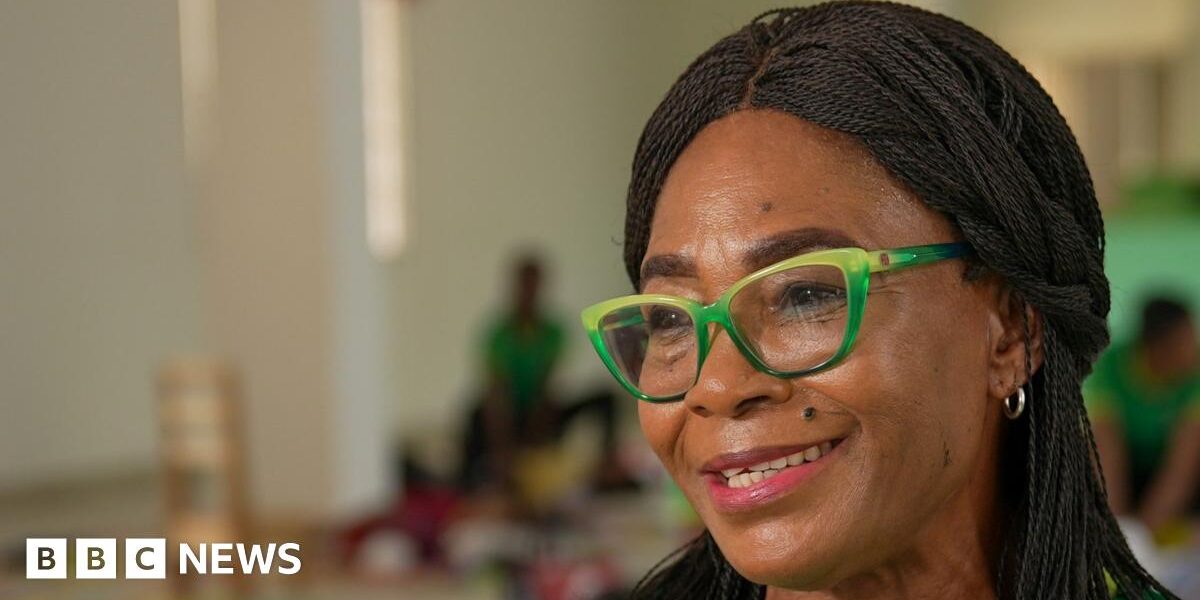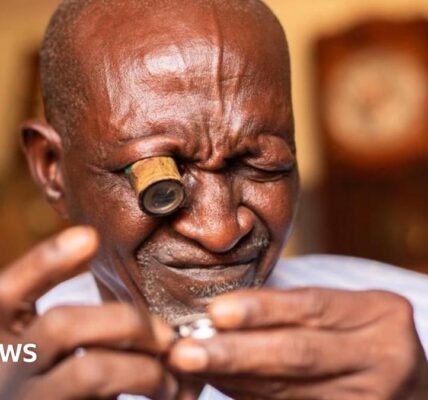Ms Nweke is not alone in her mission to dispel myths and improve care.
The Oscar Project – a charity aimed at improving the diagnosis and treatment of neonatal jaundice – recently began operating in Lagos.
The project is named after Vietnamese-born British disability advocate, Oscar Anderson, whose untreated jaundice caused his cerebral palsy.
“We’re equipping health facilities at the primary, secondary and tertiary levels with the equipment to treat jaundice, primarily light boxes, but also detection and screening equipment,” Toyin Saraki, who oversaw the launch, tells the BBC.
Project Oscar, backed by consumer health firm Reckitt, is training 300 health workers in Lagos. The hope over the first year is to reach 10,000 mothers, screen 9,000 children and introduce new protocols to try and prevent babies with jaundice from developing cerebral palsy.
In a country where the public health system is overstretched, the government has little to say about the disorder, although it lauded the Oscar project’s goals.
Treatment for neonatal jaundice is significantly cheaper than the cost of lifelong care, doctors say.
First launched in Vietnam in 2019, Project Oscar has helped about 150,000 children in the Asian country.
Mr Anderson, 22, says he wants to prevent other children experiencing what he has been through.
“People with disabilities are not to be underestimated,” he tells the BBC.
He is working to ensure screening for every newborn infant for neonatal jaundice, and, with the support and courage of mums, midwives and medical professionals, ensure there is better understanding and quicker treatment.
However, achieving this is a hugely ambitious goal in Africa’s most-populous country, where thousands of babies are born each year with neonatal jaundice.
Regardless, Mr Anderson is determined to defy the odds.
“The work doesn’t stop until every baby is protected against neonatal jaundice,” he says.





